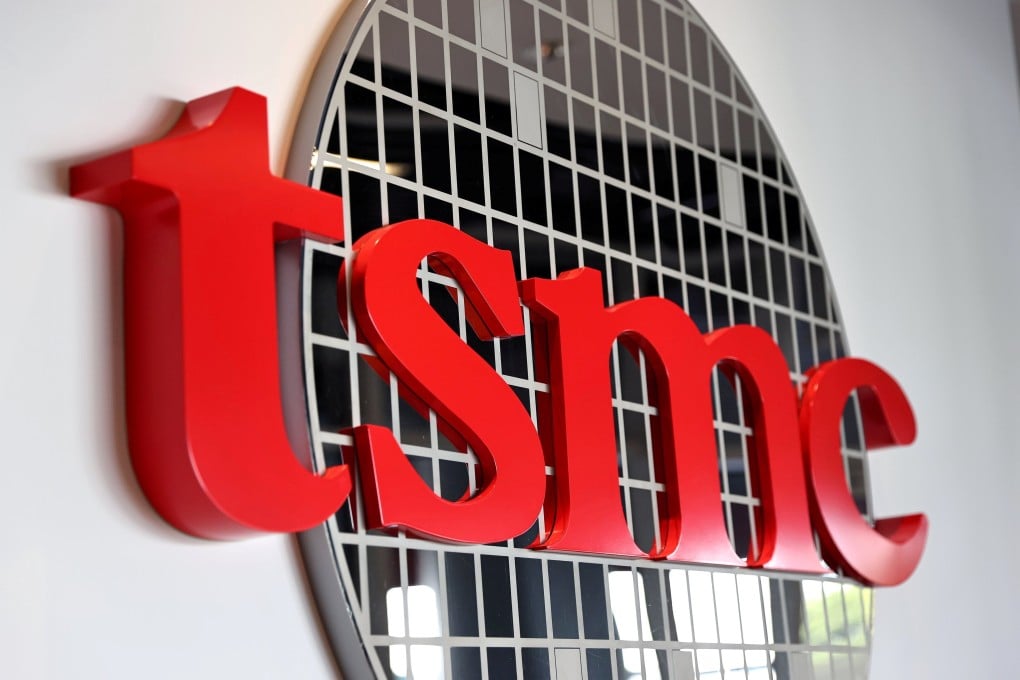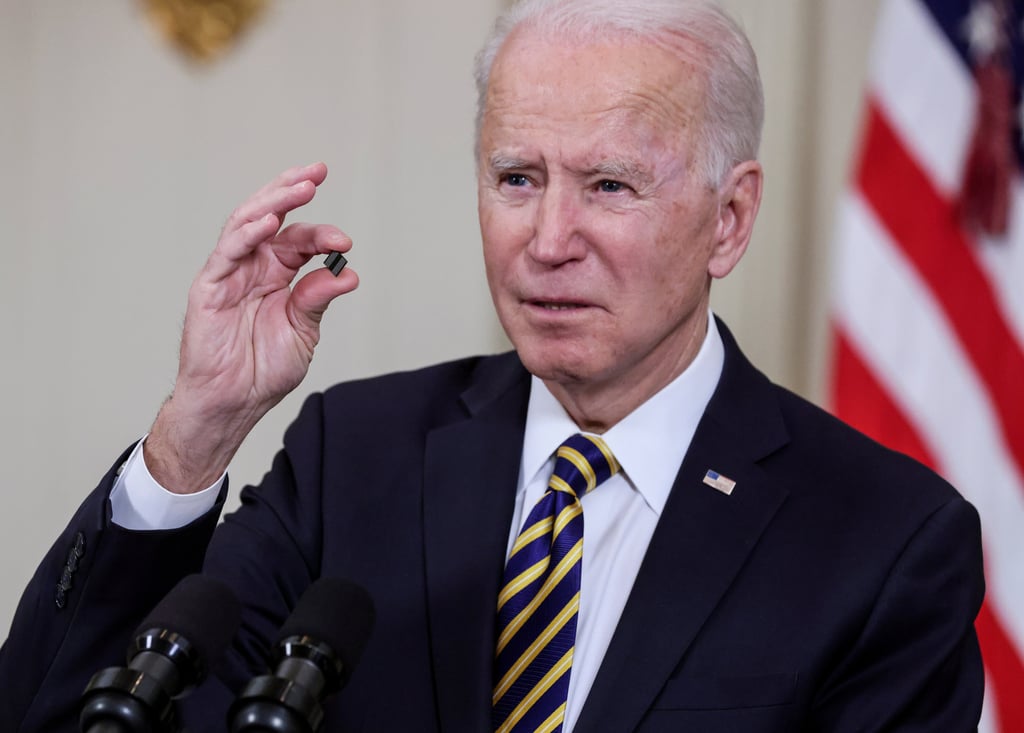TSMC chief blames geopolitical tensions for chip shortage, plays down threat from Intel and rival fabs
- TSMC reported a 25 per cent rise in first-quarter earnings amid a global chip shortage the company blamed on geopolitical tensions and stockpiling
- The company played down the potential threat of rivals like Intel increasing capacity, saying TSMC is prepared

Customers of Taiwan Semiconductor Manufacturing Co (TSMC), the world’s largest contract chip maker, are facing an extended semiconductor shortage because of short-term geopolitical tensions and escalating demand for chips in the long term.
TSMC chief executive C.C. Wei said in a conference call on Thursday that clients’ rush to stockpile chips was the product of geopolitical tensions, “creating short-term imbalance in the supply chain”. The company’s chief financial officer, Wendell Huang, agreed that tensions had contributed to higher-than-usual inventory build-up, as customers and other members of the supply chain “gradually prepare for higher levels of inventory as compared to historical seasonal levels”.
“We expect this to persist for a period of time given the industry’s need to ensure supply security,” Huang added.
The comments from top executives at TSMC, which controlled over half of the world’s advanced chip manufacturing capacity in 2019, pointed to one primary reason for the underlying global chip shortage, which is disrupting product production from gadget makers like Apple to electric car companies. The view also echoed an argument from Eric Xu Zhijun, a Huawei Technologies Co vice-chairman, who said earlier this week that US sanctions against his company had undermined trust in the global semiconductor industry, with many players now ditching zero-inventory policies to stockpile chip inventories for six months or longer.

Despite supply constraints, business is booming at TSMC, one of the few chip foundries worldwide with the capacity to meet the demand of the world’s largest electronics brands.